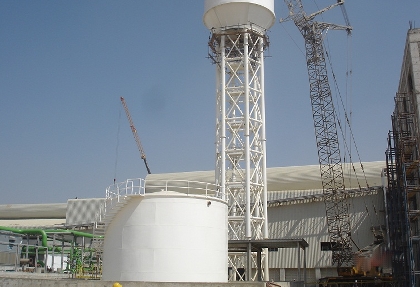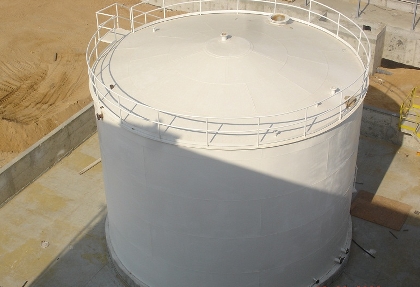

Tanks
Steel Storage Tank Design and
Application - Storage tanks made from
stainless steel are used throughout industry in
many configurations which depend upon functional
requirements. These functional requirements
include: capacity, storage median, operating
environment, and installation requirements.
The orientation of the installed tank should be
determined and a static or portable installation
where the tank can be moved from one place to
another, via wheels, casters or other devices.
The storage tank installation should minimize
all piping, especially exterior pipes in which
hazardous materials flow or a solution can
freeze if a failure occurs in the heating or
environmental control equipment. Additionally,
the storage tank and piping should located
within a low-traffic area to minimize exposure
to other equipment or personnel.
Vertical storage tanks are preferred rather than
horizontal tanks since they take up less floor
space. Tank should be supported on a adequate
foundation, such asphalt or concrete.
Connections at the top of a tank should be
designed such that they are within one area near
the edge of the tank to permit access for
maintenance. The storage tank inlet is typically
designed at the highest anticipated tank level
with a pipe that extends and accesses the lowest
tank level. The inlet pipe should have a siphon
feature on the opposed side of the tank from the
discharge location.
An atmospheric vent feature is normally included
that is open all times. Fault sensors and safety
features should also be considered as follows:
high-level, high pressure, low level,
temperature, pressure relief, sight glasses,
etc.
Storage tank may require insulation depending on
storage medium and performance at low
temperature. Stainless steel is required in
applications where the storage medium or
environment is caustic or minimal contamination
is required.


